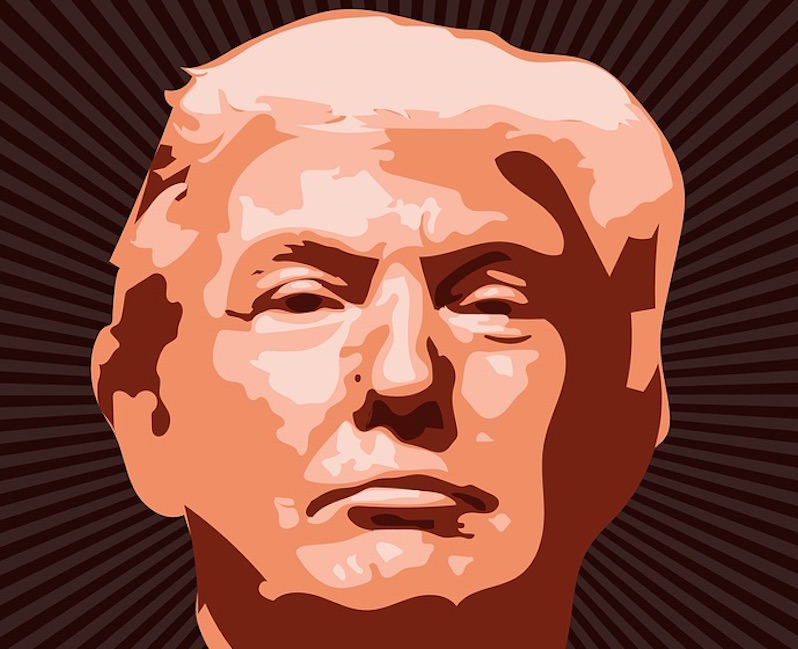The Mysterious Ways of Outsiderism in American Politics
There's a deep well of resentment around the idea that "government is run for the benefit of the people who run the government and not for the good of the country." Both major parties need to face this reality, no matter how the presidential election turns out.
Is Donald Trump the anti-establishment rebel he has portrayed himself to be this election? (Pixabay)
Will Missouri be the one state Tuesday that produces an anti-establishment trifecta? And will we ever get to exploring how Donald Trump, who has trafficked with old-style politicians all his life, has gotten away with casting himself as the year’s premier outsider?
Missouri was, as recently as 2008, a presidential swing state. This year, it’s Trump Country. But when it comes to control of the United States Senate, the state is living up to its old reputation as a decider. Thanks to the political advertisement of the year and a relentless focus on the Republican incumbent’s reputation as an insider, Democratic Secretary of State Jason Kander, a 35-year-old Army National Guard veteran who served in Afghanistan, is within a whisker of upsetting Sen. Roy Blunt.
Blunt, who served 14 years in the House before winning election to the Senate in 2010, is a courtly, old-fashioned politician who is proud of his skills as a vote-counter and touts his abilities as a bipartisan deal-maker.
Such credentials might be assets in another year. But in 2016, Blunt’s establishmentarianism is under attack as Kander reminds voters that Blunt’s wife, daughter and two of his sons are all lobbyists.
And the Democrat grabbed attention nationwide with a television commercial in which he wears a blindfold and assembles an AR-15 assault rifle while declaring his support for background checks. The cheeky close: “I approve this message because I’d like to see Sen. Blunt do this.”
The result is that Missouri is producing polling results like those in no other state. A Monmouth University survey released last Tuesday showed Blunt leading Kander by a single point even as Trump enjoyed a 14-point lead over Hillary Clinton. An Emerson poll released last Wednesday showed the Senate race tied while Trump was up by 15 points. Kander, in other words, is sharing a lot of voters with Trump.
And in the governor’s race, another outsider candidate, Republican Eric Greitens, was tied in the Monmouth poll with Democratic Attorney General Chris Koster. In August, Koster enjoyed an 11-point lead.
Victories by Trump, Kander and Greitens would mark Missouri as the country’s most rebellious state, which doesn’t surprise Woody Cozad, a former Republican state chair.
“In Missouri, this sort of Trump feeling was there before it was in a lot of other places in the country,” he said. “It’s not a year to have been there as long as Roy has.”
Cozad sees a deep well of resentment around the idea that “government is run for the benefit of the people who run the government and not for the good of the country.” Both parties need to face this, he said, no matter how the presidential election turns out.
There are two theories as the contest closes. Cozad and Jack Craft, another Republican campaign veteran, believe the endgame will move Blunt’s way. “Republicans are coming home,” said Craft, who worked with Missouri Sens. Kit Bond and Jack Danforth, pioneers of the GOP resurgence in the state.
But Steve Glorioso, a Democratic media specialist who has worked for Sen. Claire McCaskill, argues that most voters know Blunt and if they are not for him now, they are unlikely to rally to him. Glorioso cited the Monmouth poll finding that while 73 percent of voters have an opinion on Blunt, only 56 percent have one on Kander. And those who do have a view rate Blunt, on net, unfavorably, while better than 60 percent of voters who have a view of Kander rate him favorably.
That Kander has put Missouri into contention is a pleasant surprise for Democrats who need to net four seats to take control of the Senate if Clinton wins, five if she doesn’t. Here, as elsewhere, there is uncertainty about the impact of FBI Director James Comey’s decision to intervene in the campaign by releasing word of a new group of unexamined emails on a computer used by a Clinton aide. Republicans hope The Comey Effect will save some of their endangered incumbents, including Blunt.
But this raises a question the nation needs to ask itself in the campaign’s final days. Trump has bragged about his influence peddling and his closing argument was reinforced with help from anti-Clinton Republican congressional insiders and the FBI as well. How in the world has he been allowed, almost unchallenged, to paint himself as an anti-establishment rebel?
Yes, Cozad is right: Insiderism is unpopular this year. But, because of who Trump really is, his phony outsiderism is a far bigger threat to our country.
With an uncertain future and a new administration casting doubt on press freedoms, the danger is clear: The truth is at risk.
Now is the time to give. Your tax-deductible support allows us to dig deeper, delivering fearless investigative reporting and analysis that exposes what’s really happening — without compromise.
Stand with our courageous journalists. Donate today to protect a free press, uphold democracy and unearth untold stories.









You need to be a supporter to comment.
There are currently no responses to this article.
Be the first to respond.